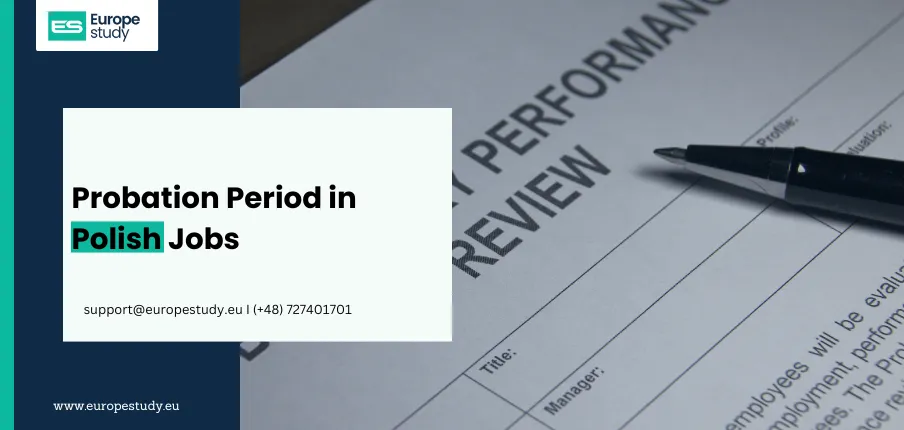
Probation Period in Polish Jobs
If you’re starting a new job in Poland, chances are your employment contract includes a probation period. While this concept is common in many countries, Poland has specific rules and expectations around it that every employee—especially foreigners—should understand.
In this post, we’ll explain what the probation period is, how it works under Polish labor law, and what you should keep in mind during this trial phase.
What Is a Probation Period in Poland?
A probation period (Polish: okres próbny) is a fixed-term contract designed to test both the employee’s suitability for the role and the employer's fit for the worker. It is often the first stage of employment and is legally distinct from permanent contracts.
Key Features of a Probation Period
- Maximum Length:
The probation period in Poland can last up to 3 months. Employers cannot legally extend this period beyond that. - One-Time Use:
A probation contract can only be used once per employee per employer, even if the worker is later rehired for a different role. - Contract Type:
It must be a written contract and should clearly state the probation period's duration and terms. - Employment Rights:
During probation, you are still a full employee with access to benefits such as paid leave, sick pay, and social security contributions.
Termination During Probation
One of the key reasons employers use probation is to maintain flexibility in case things don’t work out. However, there are still rules:
- Notice Periods:
- If the probation period is less than 2 weeks: 3 days’ notice
- If it’s 2 weeks to 3 months: 1 week’s notice
- If it’s 3 months: 2 weeks’ notice
These notice periods apply to both the employer and employee, unless the contract states otherwise.
- No Reason Required:
Either party can terminate the contract without giving a reason. However, written notice is still required.
What Happens After Probation?
If both sides are satisfied, the employer may offer:
- A fixed-term contract (umowa na czas określony), or
- An open-ended contract (umowa na czas nieokreślony)
Note that the probation contract does not automatically convert into a longer contract—you must sign a new agreement.
Tips for Navigating Probation Successfully
- Clarify expectations early: Understand what your employer is evaluating and ask for feedback regularly.
- Act professionally: Punctuality, communication, and teamwork matter.
- Document performance: Keep track of your achievements and tasks—it could support your case for a longer contract.
- Understand your rights: Even during probation, you’re entitled to fair treatment and basic benefits.
Final Thoughts
Probation periods in Poland are common and serve as a way for both parties to test the working relationship. While they offer flexibility, they also come with clear rules under the Polish Labor Code. Knowing your rights and responsibilities during this time will help you make a strong start and potentially secure longer-term employment.
If you're moving to Poland or just landed your first job here, understanding the probation period is a crucial step toward a successful career.





